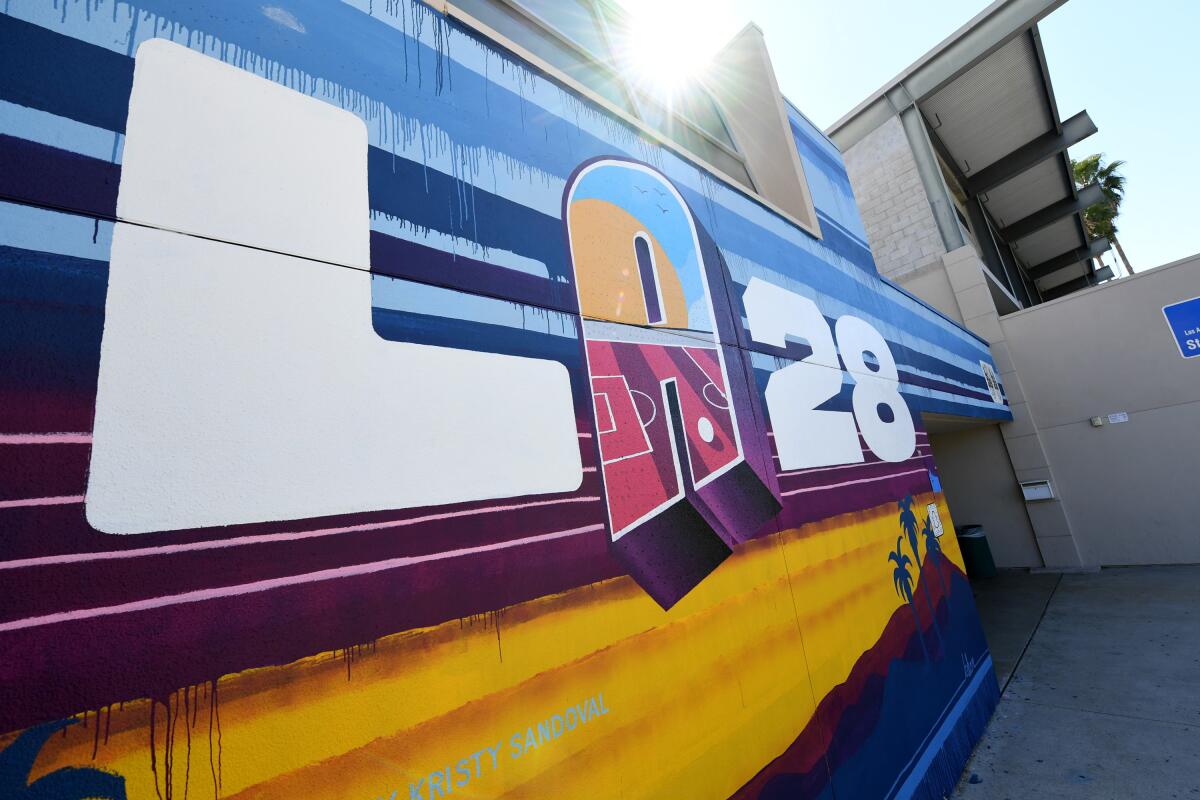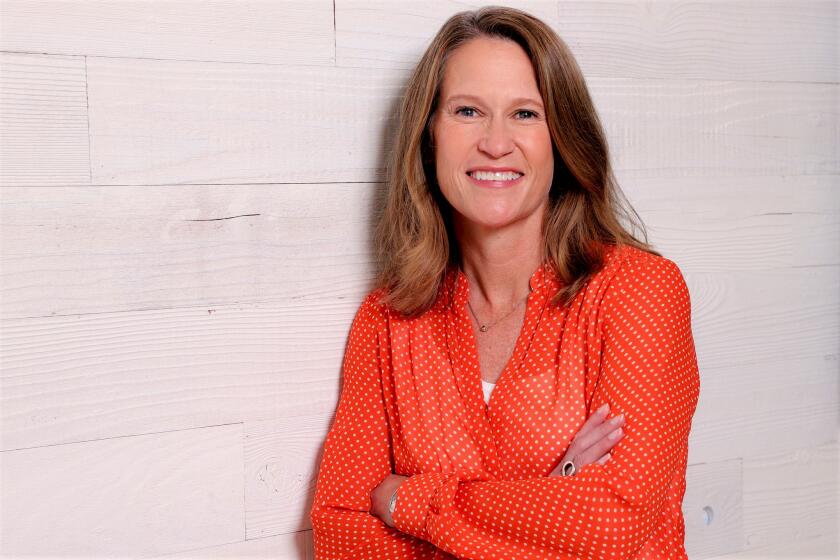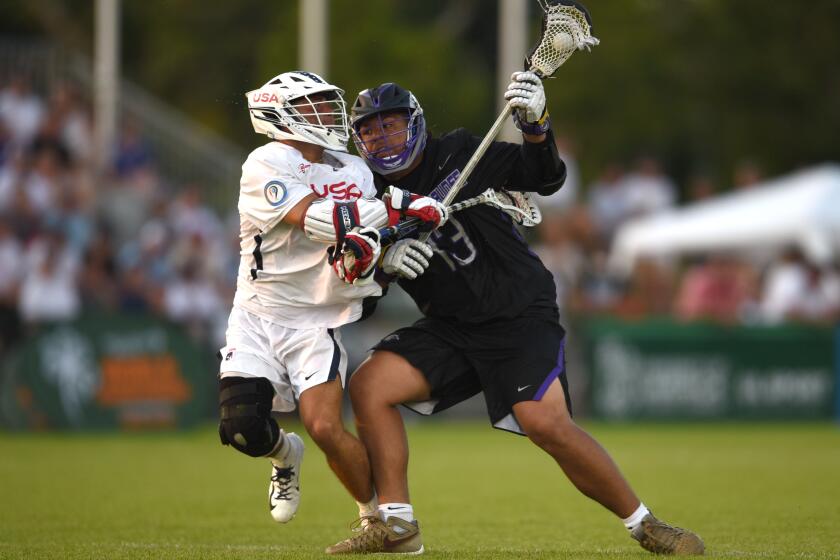Amid leadership changes, LA28 still confident it can raise billions for 2028 Olympics

In the midst of this week’s sudden leadership changes, the private committee tasked with organizing the 2028 Summer Olympics in Los Angeles insisted it remains on track to raise billions of dollars needed to pay for the costly sporting event.
LA28 saw its chief executive Kathy Carter and chief business officer Brian Lafemina step down in recent days. The committee characterized both moves as part of a planned transition into a new phase of preparations.
But the departures raised concerns about a campaign to attract $2.5 billion in domestic corporate sponsorships. In the post-COVID era, amid lingering economic headwinds, organizers stood at only 35% of that goal as recently as last summer.
With the 2028 Los Angeles Olympics just over four years away, local organizers announced Monday that CEO Kathy Carter is moving into a new position.
On Wednesday, LA28 chairman Casey Wasserman announced that sponsorships have now exceeded 65%, or about $1.6 billion, and promised additional deals will be announced in the new year.
“Our sales momentum is growing and we remain confident that we’ll have the resources to deliver a spectacular Games experience in L.A.,” Wasserman said in a statement.
The most recent budget for the 2028 Summer Games forecasts an overall cost of $6.9 billion, with organizers vowing to pay all expenses through payments from the International Olympic Committee, sponsorships, ticket sales and other revenue streams.
Balancing the budget will be crucial because city and state legislators have agreed to serve as a financial backstop, meaning that taxpayers will be on the hook for any bills that LA28 cannot cover.
MLB players are excited about the prospect of playing in the 2028 Los Angeles Olympics. So why won’t the league commit to making it happen?
During the bid process, the committee estimated a $5.3-billion Olympic budget based on 2016 dollars. Inflation has caused that total to be revised upward twice so far.
Certain risks are beyond organizers’ control, as the committees in Tokyo and Beijing discovered when their Games struggled through an unforeseen global pandemic. LA28 says it has secured insurance against any such force majeure developments.
In the meantime, however, there is money to raise for predictable costs.
Within the Olympic framework, the IOC sells international sponsorships and passes along a slice of that revenue to the host city. The local organizing committee gets to forge separate deals within its own country.
Though LA28 has secured domestic partnerships with the likes of Delta Air Lines, Deloitte, Nike and Salesforce, it has yet to announce contracts in potentially lucrative categories such as banking, alcohol and telecommunications.
The Haudenosaunee people are credited with inventing the game of lacrosse. Now they are fighting to send a team to the 2028 Summer Olympics in Los Angeles.
“If this was two years out I’d be humming a different tune, but I think they’ll be fine,” said Rob Prazmark, whose 21 Marketing agency in Connecticut has brokered Olympic sponsorship deals for decades. “They can cover that number.”
This week’s leadership overhaul at LA28 did not surprise Olympic experts, who say organizing committees tend to morph in the years between winning the right to host the Games and actually staging them.
“This is par for the course,” said Michael Payne, a former IOC marketing director. “I don’t think anyone should be losing any sleep thinking this is a crisis.”
Local organizers maintain that something other than finances triggered the changes. When the clock starts ticking after Paris, with four years to go before a dual opening ceremony at the Coliseum and SoFi Stadium, they will face a new set of challenges, including the need to finalize contracts with sports venues throughout Southern California.
“As anticipated, because LA28 is moving from a commercial and planning phase to an operational and delivery phase, now is the right time for me to pass the torch,” Carter said in a statement announcing her departure earlier this week.
The IOC votes to include baseball, softball, flag football, cricket, squash and lacrosse as official sports for the 2028 Los Angeles Olympic Games.
But the shift does not reduce financial concerns as LA28 approaches a critical point.
Sponsors have historically been more eager to hand over dollars as the Games draw closer. The L.A. committee will need to capitalize on timing and any afterglow from the upcoming 2024 Summer Olympics.
“Now they’re coming into prime time,” said Prazmark, who has written a new book titled, “The Olympics Don’t Take American Express.” “If they get through Paris and still have issues in 2025, then you scratch your head.”











